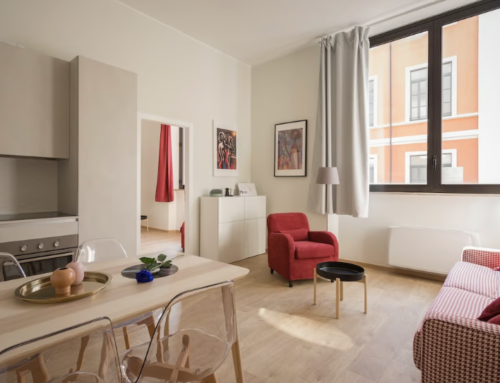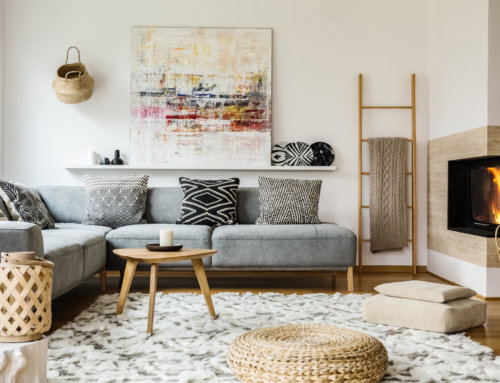
Are you wondering how to protect your sobriety after rehab? Perhaps you’re straight from rehab, you’ve been out of treatment for a few months, or you need support after relapsing. Whatever the case, sober housing is the best option.
Do you know more than 85% of people relapse within the first year after treatment? We can all agree, maintaining long-term sobriety can be a gordian-knot. After successfully undergoing rehab treatment, you need a place you can feel supported, safe, and committed to maintaining your sobriety.
This is where sober housing will save the day. The right sober living home offers the support, structure, and accountability you need to full recovery. Also, you find sober, like-minded individuals who walk together with you in the recovery phase.
However, find a sober home that meets your needs and preference and will work for you for the best results. But with more than 17000 recovery homes in the US, how do you choose the perfect one for you?
To get you started, here are 11 key tips to finding the perfect sober housing.
1. Check on the Location
Location is among the utmost consideration when choosing sober housing. Remember, this is where you are going to live for the next few months. The location of the sober home should not only be safe but should be far from your triggers.
When picking a sober home living, check to confirm that you are safe and can access everything you might need when living there. Ensure that sober housing exists in a safe neighborhood where you don’t have to worry about your security.
You also want to confirm that the facility is located in areas away from your triggers. If your friends or roommates were the main influence on your substance abuse, opt for sober housing far from your neighborhood. This way, you get no external pressure that causes you to relapse.
2. Look for Recommendations
To make the whole process easier and get valid names for sober homes you can consider, ask for recommendations. This could be from your friends or family who have been to sober housing before. Apart from offering you one or two names of sober homes, they will offer you advice about selecting and even living in sober housing.
However, remember there is no guarantee that what worked for them will work for you. Thus, carry out due diligence on the names provided to determine if they meet your specific needs and preferences.
3. Check Their Reputation
It’s important to check on the experience of residents who have been residents in the sober living home. What are they saying about the sober living home? They will give you crucial insights to help you determine if the facility is the best option for you.
To get the info right from the horse’s mouth, read testimonials on their website. But for impartial feedback, consider reading reviews from third-party websites like Yelp.
When reading these readings, remember the criticism or praise you find is the actual experience of living in the facility. Also, check if there are any complaints filed against the facility with Better Business Bureau.
4. Visit the Sober Housing Facility
Before making the final decision, consider visiting the different facilities on your list. Using the contacts on their website, reach out to the sober home and schedule an appointment when you can visit. Here, you want to see everything firsthand and ask any questions that you may have.
Be keen to check on the behaviors of those residing there currently. Do they seem comfortable and happy? With the permission of staff, consider talking to the residents. Ask about their experience and whether they can recommend you to join them.
In addition, check on the atmosphere of the place, is it positive or negative.
When you are done walking around, ask all questions you have to the staff. Observe avidly to see how your questions are answered. Avoid them if you don’t get satisfactory answers or leave the facility with more questions than answers.
5. Review Rules for Residents
After visiting the facility, talk to the admission team or management to know the requirements, rules, and expectations. Can you live according to these requirements?
Review the standards and rules for residents before you commit yourself to joining the facility. You want to know;
• If you can host a visitor when living there and when
• The kind of social activities you’ll have
• Romantic relationships policy
• Random drug testing and drugs and alcohol policy
While these might seem like trivial issues, they heavily impact your living in the facility and ability to maintain sobriety.
6. Check for Sound Living Spaces
During your visit to the facility, confirm it is a hygienic place. It would be best if you avoided any facility that looks dirty or with unsafe structures.
After visiting the facility, you need to walk around guided by staff to check on their amenities. Will you be comfortable living in the facility? Do they have everything you might need?
An organized, clean, and hygienic sober home reflects the residents and staff respect each other. It shows their commitment to their roles and responsibilities to create a conducive environment.
7. Learn About the Staff
During your time in the sober living home, the staff plays a key role in determining the happiness and success of residents. Prior to accepting residency in sober housing, take time to check on their staff. Know who their staff are, the qualifications they have, and their interaction with the residents.
At all times, the facility should have supportive, compassionate, but strong staff to guide residents and enforce rules. Also, review whether the staff develops addiction recovery programs for residents and whether they involve the resident.
When making your choice, choose a facility with experienced, qualified, and compassionate staff. They will guide, motivate and support you to maintain long-term sobriety.
8. What Are Their Fees?
Prior to selecting a sober living facility, can you afford to live there? Most sober living homes will charge a monthly fee to cover the room and board. However, you may need to plan on paying for your hygiene, products, food, as well as transportation costs.
You want to confirm if the facility offers any payment plan or arrangements with the residents. The charges will depend on whether you are attending an intensive outpatient program or regular clinical counseling sessions.
Also, check if your health insurance can cover some of these costs. However, confirm with the admission staff if they accept insurance before enrolling.
Keep in mind that every sober living home offers unique and personalized recovery support services to its residents. This means costs can vary widely depending on what they offer and what you need.
9. Consider Length of Stay
Some sober housing requires residents to live in the facility for a particular period. For instance, some facilities require clients to live there for not less than six months. You can still find facilities without any requirement on time of stay.
Since there is no way of determining how long you may need to stay there, pick sober housing allowing for flexibility and where you can stay for as long as you want. The aim is to leave the facility when you feel confident enough to cope with the outside environment.
10. Look Out For Red Flags
There are several red flags that one also needs to check out for searching for sober housing. There are some of the prior signs showing the facility doesn’t offer proper care to residents.
• Some of the red flags to alert you on the unsuitability of the facility include;
• No requirements for admission
• No rules for residents
• No or unqualified staff
• Unhygienic facility
11. Accreditation and Licensing
Is the sober facility accredited and licensed to operate? To get a license, the facility needs to meet stringent requisites put in place by authorities. This ensures the safety of residents and the provision of quality services.
Sober housing with a license signifies that they have met all requirements and are committed to offering top-quality services to their clients. When you visit them, ask to see a copy of the license certificate to confirm their legitimacy.
Also, check if they are registered with National Alliance for Recover Residencies.
Consider These Tips When Choosing a Sober Housing
Sober housing can be a clean, safe, and supportive transitional living place for individuals in every stage of recovery. However, it’s paramount that you select the right place to get the help you need.
Are you looking for or wondering how to start a sober living home? At Taste Recovery, we are here to help. We want to shine a light on sober living in a positive way and help individuals find a safe, stable, and sober environment for a full recovery.
Contact us today to join us.









